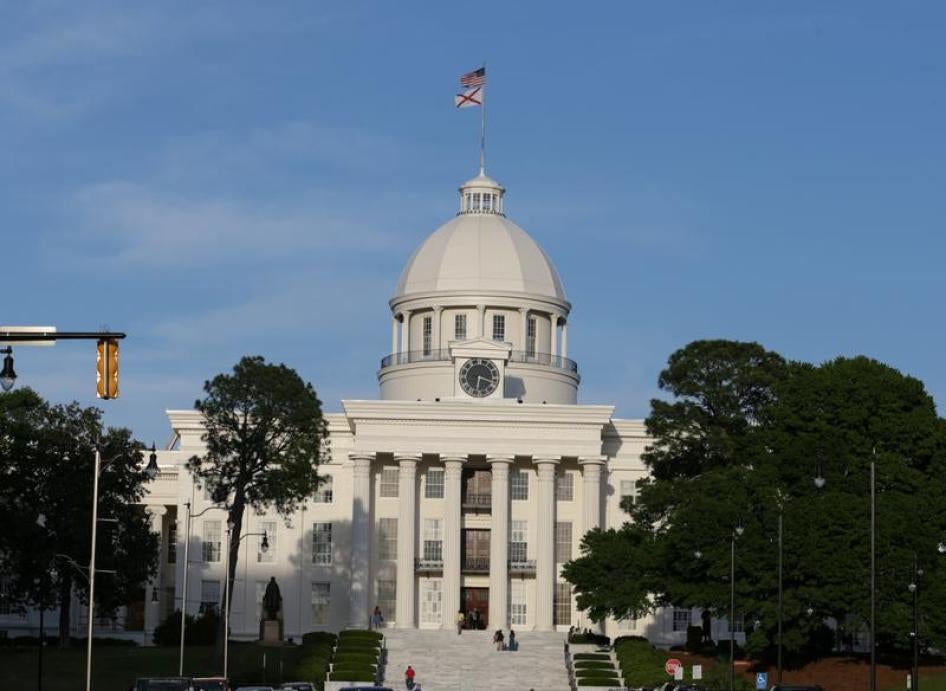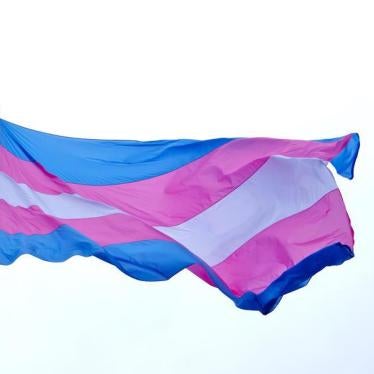Alabama Legislature
11 South Union Street
Montgomery, AL 36130
Re: House Bill 303 and Health Care for Transgender and Intersex Children
Dear Representative,
I write on behalf of Human Rights Watch to share our concerns about House Bill 303, which would criminalize the provision of gender-affirming health care to children. We believe that House Bill 303 is not only unnecessary but would seriously jeopardize the health and rights of transgender and intersex children in Alabama.
Human Rights Watch has interviewed dozens of children and adults for research reports on lesbian, gay, bisexual, transgender, and intersex (LGBTI) issues, including in Alabama. We have documented the importance of young transgender people being affirmed and supported in their gender identity.
HB 303 would prohibit medical professionals from providing various forms of gender-affirming care, including puberty blockers, hormones, or surgeries. It would classify the provision of such care as a Class C felony, which carries a penalty of one to ten years in prison and a fine of up to $15,000. It would expressly permit medical and surgical interventions on intersex children, however, whether medically necessary or not.
If passed, the bill would seriously jeopardize the health and rights of children in Alabama. Research indicates that transgender children are at heightened risk of anxiety, depression, and suicidal thoughts,[1] conditions that often are exacerbated by gender dysphoria.[2] A considerable body of data indicates that affirming transgender children’s gender identity is associated with better physical and mental health outcomes.[3] Recent research indicates that pubertal suppression in childhood is associated with lower rates of suicidal ideation for transgender individuals.[4] Where appropriate, gender-affirming hormones may also improve well-being and reduce suicidality.[5] Most professional standards of care do not recommend surgical interventions for transgender children – and such procedures are extremely rare – but these may be appropriate and medically beneficial in some instances.[6] Accordingly, the American Academy of Pediatrics and other professional organizations have endorsed a gender-affirming approach to health care for transgender children.[7]
The law would also put the state’s stamp of approval on nonconsensual, medically unnecessary surgeries on intersex infants – surgeries that do threaten children’s health and rights. As Human Rights Watch has documented, these surgeries are irreversible, can limit fertility and sexual sensation, and may inflict lifelong pain.[8] The operations have been condemned 48 times by United Nations treaty bodies, as well as by three former US surgeons-general in a 2017 white paper, which stated: “These surgeries violate an individual’s right to personal autonomy over their own future.”[9] Such medically unnecessary surgeries should not be performed on children too young to participate in the decision.
House Bill 303 would further undermine children’s rights by requiring teachers, counselors, nurses, and school administrators to notify a parent or guardian if a student indicates they are transgender. The failure to out a student to their parent or guardian would become a Class A misdemeanor, punishable with up to a year in jail or a $6,000 fine. Many transgender children do not disclose their transgender status to family members because of legitimate fears they will be disowned, kicked out of their home, or subject to physical or mental abuse. Affirming schools can be a critical lifeline for transgender youth exploring their gender identity who do not have support at home, and who frequently rely on resources and confidential mental health services available at school. A blanket requirement that school personnel notify parents or guardians about a child’s transgender status poses a serious threat to students’ safety, privacy, and well-being.
Enacting House Bill 303 into law would seriously jeopardize the health and rights of transgender and intersex children in Alabama, and threaten fundamental abuses to children’s human rights. The bill would undermine children’s rights to bodily integrity and health, and would constrain supportive parents and doctors from doing what is right for children. If lawmakers are genuinely concerned about the well-being of transgender and intersex children, they should ensure that they are expressly protected from bullying and harassment at school, have access to confidential counseling and support, and are able to obtain the health care they need. Lawmakers should also ensure that they are protected from discrimination on the basis of gender identity, both as children and as adults.
Restricting youth from accessing gender-affirming care without regard to their needs or health is a significant step in the wrong direction. Human Rights Watch urges you to reject House Bill 303.
Please do not hesitate to contact us if we can provide further information. We appreciate your attention to this important matter.
Sincerely,
Zama Neff
Executive Director
Children's Rights Division
Human Rights Watch
[1] Becerra-Culqui, Tracy A. et al., “Mental Health of Transgender and Gender Nonconforming Youth Compared with Their Peers,” Pediatrics, 141.5 (2018): e20173845.
[2] Gender dysphoria is “a conflict between a person’s physical or assigned gender and the gender with which he/she/they identify,” which can cause “significant distress and/or problems functioning associated with this conflict between the way they feel and think of themselves (referred to as experienced or expressed gender) and their physical or assigned gender.” American Psychiatric Association, “What is Gender Dysphoria,” https://www.psychiatry.org/patients-families/gender-dysphoria/what-is-gender-dysphoria (accessed January 31, 2020).
[3] McCann, Edward et al., “The Experiences of Youth Who Identify as Trans* in Relation to Health and Social Care Needs: A Scoping Review,” Youth & Society, 51.6 (2019): 840-864.
[4] Turban, Jack L. et al., “Pubertal Suppression for Transgender Youth and Risk of Suicidal Ideation,” Pediatrics, 145.2 (2020): e20191725. Pubertal suppression employs hormone analogues to prevent a young person from undergoing puberty as long as the treatment is administered. The treatment is fully reversible, and provides a young person time to confirm their identity before undergoing physical development that may not align with their gender identity. Id.
[5] Allen, L.R. et al., “Well-Being and Suicidality Among Transgender Youth after Gender-Affirming Hormones,” Clinical Practice in Pediatric Psychology, 7.3 (2019): 302-311.
[6] Rafferty, Jason R., “Ensuring Comprehensive Care and Support for Transgender and Gender-Diverse Children and Adolescents,” Pediatrics 142.4(2018): e20182162.
[7] American Academy of Pediatrics, “AAP Policy Statement Urges Support and Care of Transgender and Gender-Diverse Children and Adolescents,” Sept. 17, 2018, https://www.aap.org/en-us/about-the-aap/aap-press-room/Pages/AAP-Policy-Statement-Urges-Support-and-Care-of-Transgender-and-Gender-Diverse-Children-and-Adolescents.aspx.
[8] Human Rights Watch and InterACT, “I Want to Be Like Nature Made Me”: Medically Unnecessary Surgeries on Intersex Children in the US (2017), https://www.hrw.org/report/2017/07/25/i-want-be-nature-made-me/medically-unnecessary-surgeries-intersex-children-us.
[9] Palm Center, “Re-Thinking Genital Surgeries on Intersex Infants,” June 2017, http://www.palmcenter.org/wp-content/uploads/2017/06/Re-Thinking-Genital-Surgeries-1.pdf.








